Awards
Achievements
In 2021 Exciton Science members were recognised with a raft of awards, ranging from prestigious recognition of contributions to the field, ground breaking new research fellowships, recognition of leadership and research communication excellence, and high profile positions. Read about how Exciton Scientists are being recognised below.
Paul Mulvaney elected to Australian Academy of Science Council
In 2021, Professor Paul Mulvaney, the Director of the ARC Centre of Excellence in Exciton Science, was elected to the Council of the Australian Academy of Science.
Based in Canberra’s architecturally significant Shine Dome, the Academy was founded in 1954 and is an organisation comprising Australia’s leading research scientists.
This is the first time that Paul, who joined the Academy in 2009, has served on the council, which is charged with making internal policy decisions, providing advice to government, and deciding on the membership of the wider Academy.
“It’s nice to be asked because this is the peak science body for Australia,” he said.
“It’s nice to have an opportunity to have some say in the direction science goes in Australia and to help formulate the policies that we provide to government.
“These bodies have a key role to play in ensuring science has a clear public profile with the Australian community. We all know that unless you are seen, you won’t be heard.
“These groups all do a very important job in lobbying to ensure that research and education in science is continued throughout Australia.
“It’s driven by the passion of the people in it. It’s about people believing in what they’re doing.”
As a representative of Exciton Science and the University of Melbourne, Paul is hoping to keep the transition to net zero carbon near the top of the council’s agenda as well as the national agenda during his tenure.
“Coming from my own research interests, both as a chemist and in terms of energy, I would like to continue to have the Academy advocate very strongly both for sustainable, renewable energy and improved protection for the Australian environment,” he said.
“It’s not impossible, it’s about greater awareness. It’s something Australia can tackle. We have the skills and expertise. We simply need good government policies to make Australia a better place.”
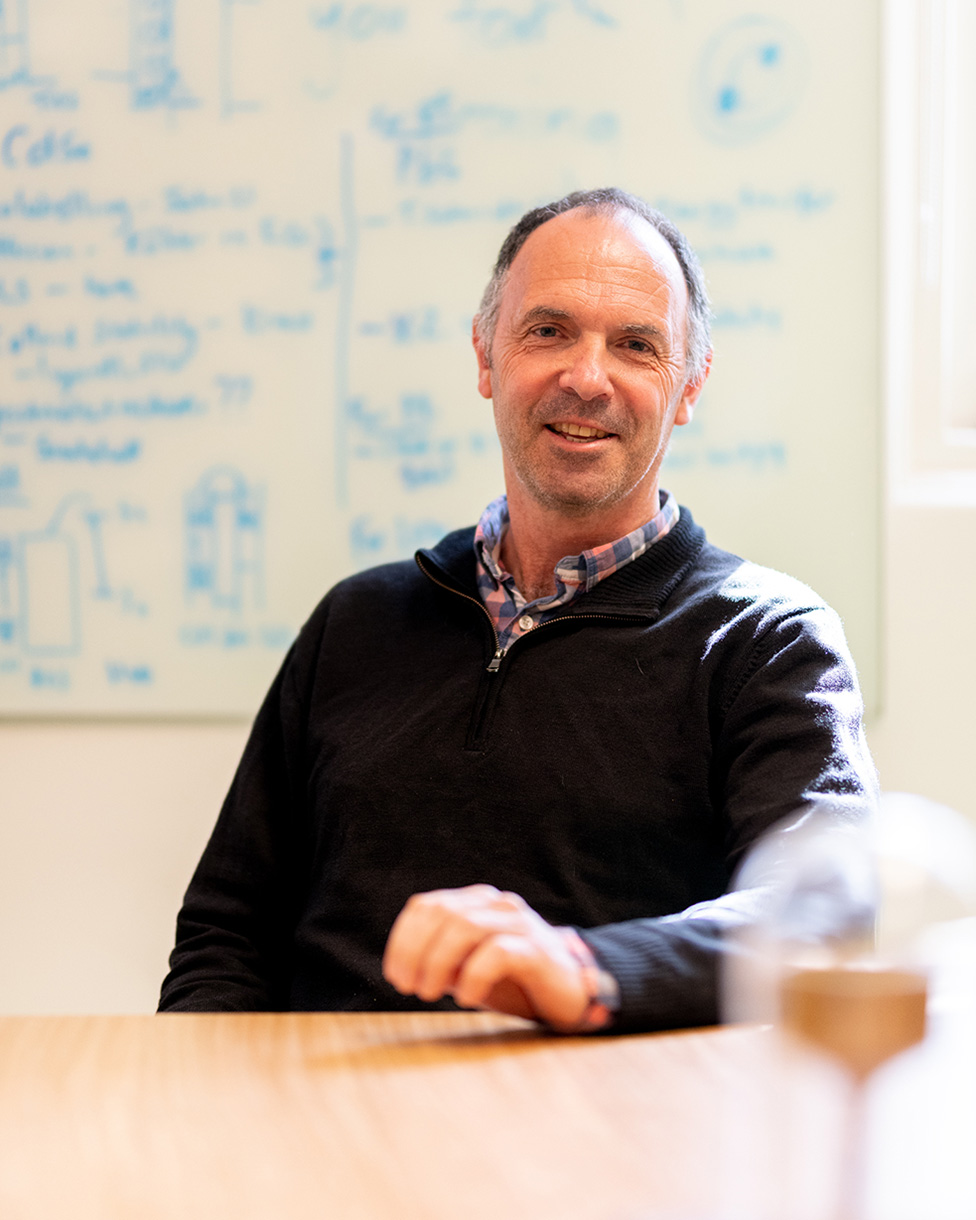
Prof. Paul Mulvaney
Centre Director, Exciton Science
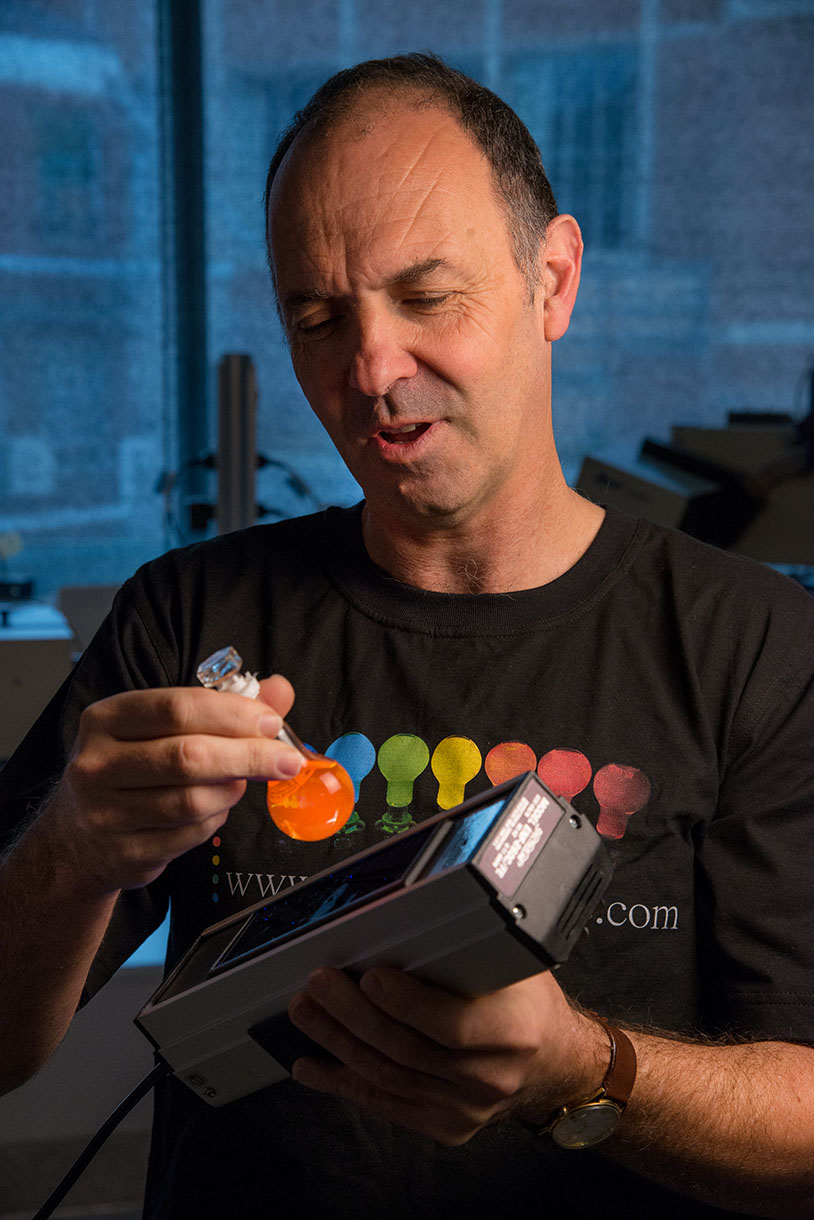
Asian Photochemical Association Awards
Exciton Science earned a hat-trick of awards at the Asian and Oceanian Photochemistry Conference in 2021, with University of Melbourne trio Paul Mulvaney, Ken Ghiggino and Chris Hall all recognised for important contributions to their field.
Professor Mulvaney, the Director of Exciton Science, received the Masuhara Lectureship Award in recognition of his contributions to photochemistry.
The award was created to honour the work and impact of Professor Hiroshi Masuhara, a former member of the Exciton Science International Scientific Advisory Board who continues to contribute to the field of photochemistry following six decades of cutting-edge research.
Paul, the Director of the NanoScience Laboratory at the University of Melbourne’s School of Chemistry, was cited for his outstanding contributions to the Photochemistry and Photophysics of Excitonic and Plasmonic Nanomaterials.
He joined previous esteemed winners of the Masuhara Lectureship Award, including Exciton Science Associate Investigator Greg Scholes, who received the prize in 2016.
Paul’s talk was titled "Spectroelectrochemistry of Quantum Dots and Nanoplatelets”.
Paul’s fellow Exciton Science Chief Investigator, Professor Emeritus Ghiggino, received the APA Prize for Distinguished Achievements to APA.
Ken, co-lead of the Ultrafast and Microspectroscopy Laboratories at the University of Melbourne’s School of Chemistry, was acknowledged for his longstanding membership of the executive committee, which he chaired.
He also co-chaired the sixth APC with Gerald Smith in Wellington, New Zealand, in November 2010.
Ken’s talk was titled "Photophysics of the Organic Bulk Heterojunction”.
Finally, Dr Hall, an ARC Future Fellow and Exciton Science Research Fellow within Ken’s group, was one of three recipients of the recent APA Prize for Young Scientist (2019).
Chris gave a talk titled "Probing Excited-State Structure and Function in Molecular Motors and Mixed-Halide Perovskites”.
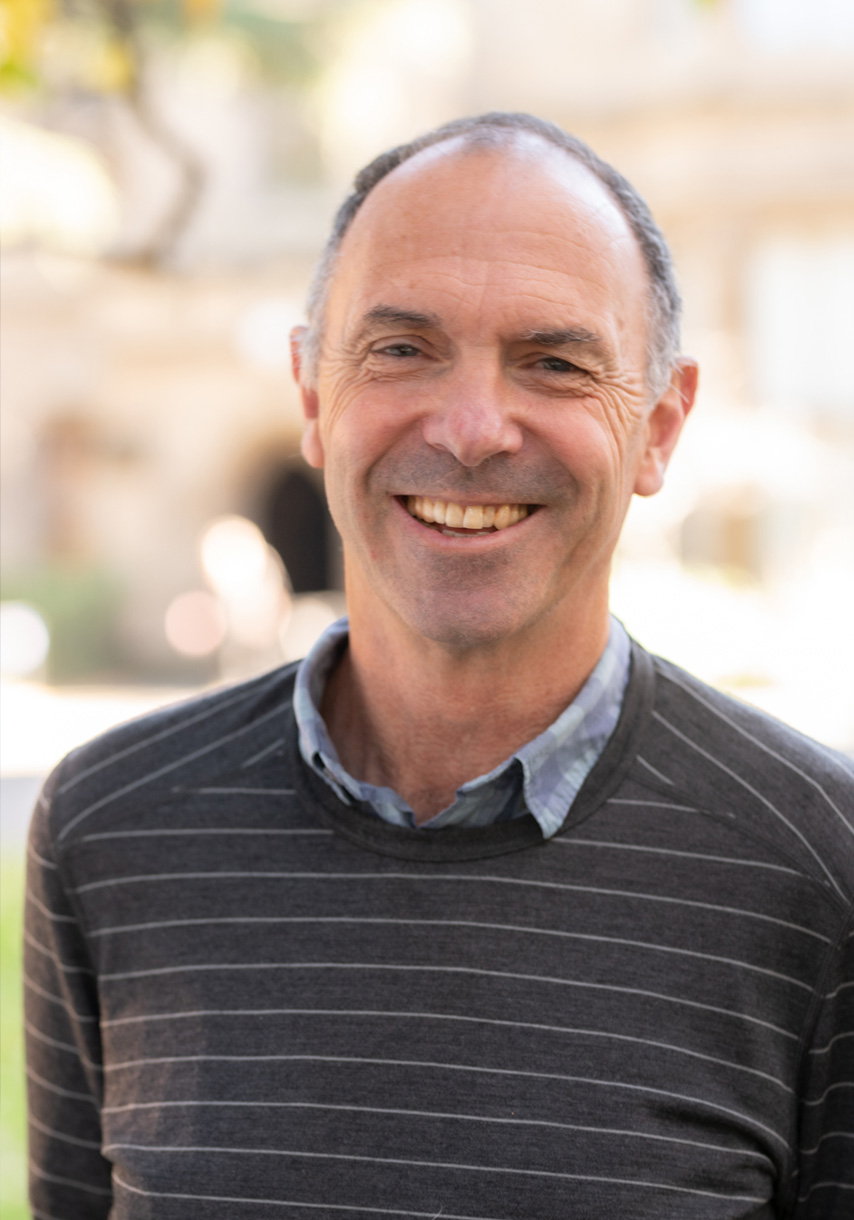
Prof. Paul Mulvaney
Centre Director, Exciton Science
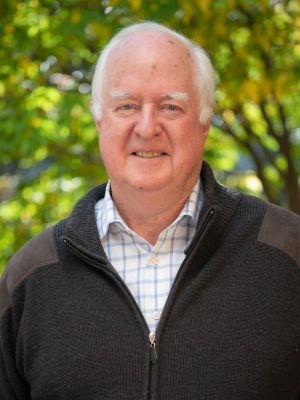
Prof. Ken Ghiggino
Chief Investigator, University of Melbourne
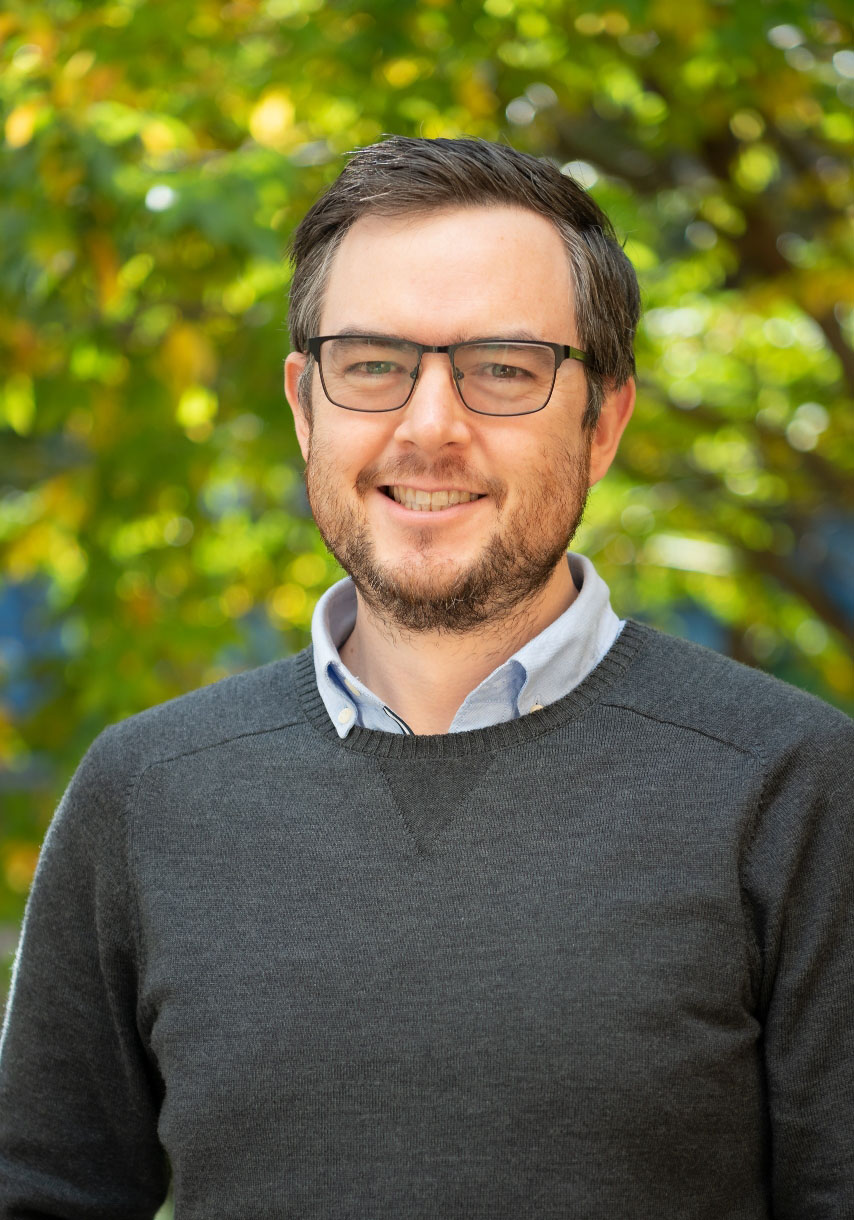
Dr. Chris Hall
Postdoctoral Research Fellow, University of Melbourne
Chris Hall and Anita Ho-Baillie awarded ARC Future Fellowships
Exciton Science’s Dr Chris Hall and Professor Anita Ho-Baillie were awarded Australian Research Council Future Fellowships in 2021.
The Future Fellowships program provides four-year fellowships to outstanding Australian mid-career researchers to undertake high-quality research in areas of national and international benefit.
Chris, who is based within the Ultrafast and Microspectroscopy Laboratories at the University of Melbourne’s School of Chemistry, will be provided with funding to develop new tools to study photochemical systems.
Anita, the John Hooke Chair of Nanoscience at the University of Sydney, will be able to further her research into the use of emerging photovoltaics materials to provide sustainable energy for space hardware, including satellites and vehicles.
There has been a rapid recent growth in space exploration and experimentation. As we move into the era of 'commercial space', cost will become paramount, necessitating the development of new cost-effective photovoltaic technologies.
Metal halide perovskite solar cells show the greatest potential. They have a higher power to weight ratio and are significantly cheaper to be manufactured compared to incumbent space cells.
Anita’s project aims to develop and demonstrate perovskite solar cells to achieve high power conversion efficiencies and long operating lifetimes while withstanding the extreme demands of space.
I’m very, very happy that I’m supported for this exciting project, there will be additional resources for the project and my team is very much energised.
Anita Ho-Baillie
Chris, meanwhile, specialises in using ultrafast electronic and vibrational spectroscopy techniques to resolve excited state processes in semiconductors, proteins and molecular systems.
While the last 40 years has seen many developments in ultrafast techniques, separating and quantifying competing reactions in complex photochemical systems remains a major challenge.
The project Chris has received funding for seeks to overcome this challenge by combining ultrafast electronic and vibrational spectroscopies to open new avenues for spectroscopic investigation of photochemical systems.
This will be used to probe and quantify the reaction pathways of photochemical reactions with ultrafast time-resolution, and with sensitivity to the molecular structure of selected excited-states.
I’m deeply grateful for the support I’ve had from Exciton Science, the Ultrafast Microspectroscopy Laboratory and the School of Chemistry at University of Melbourne over the past three years and I look forward to working with them in the years ahead.
Chris Hall

Dr. Chris Hall
Postdoctoral Research Fellow, University of Melbourne
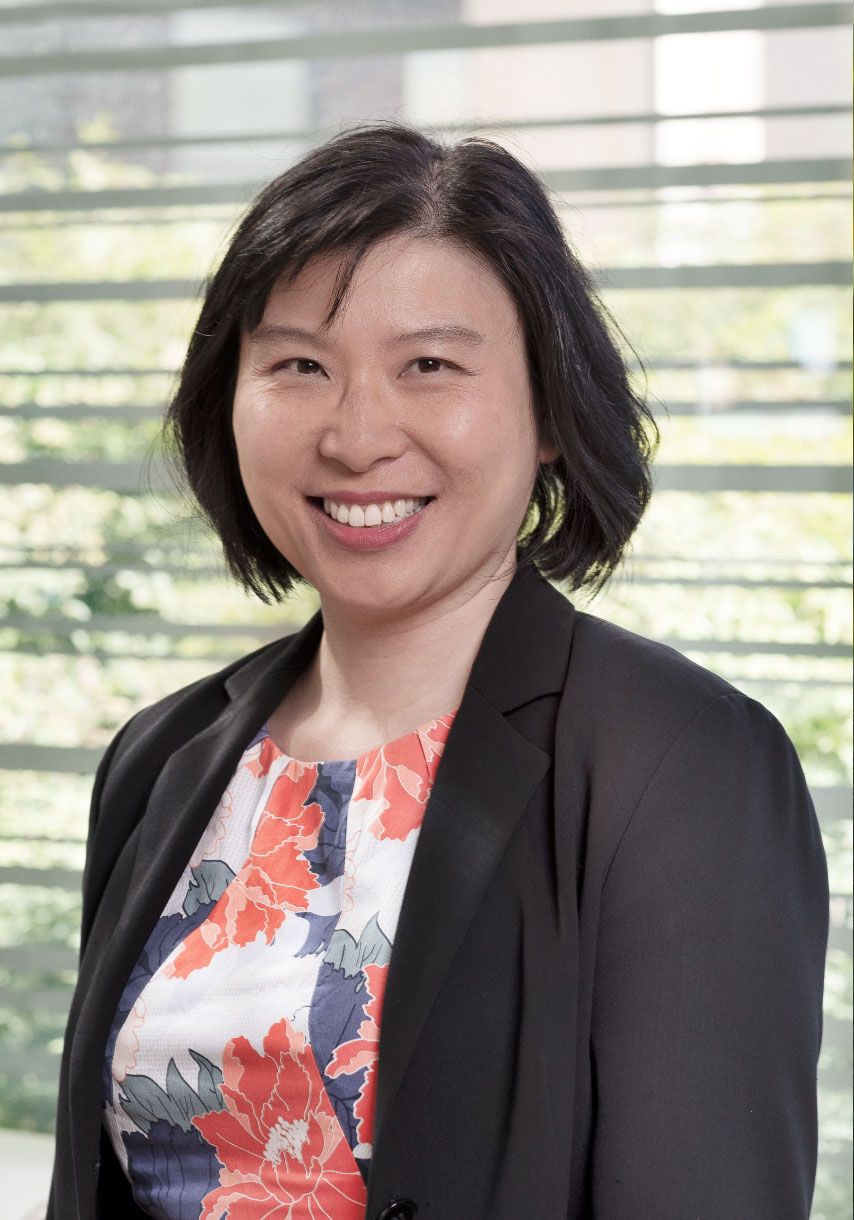
Prof. Anita Ho-Baillie
Associate Investigator, University of Sydney
FameLab
Exciton Science’s Alison Campbell reached the semi-finals of the New South Wales edition of FameLab and later took out the Audience Choice Award for the state.
FameLab is a live science communication competition that aims to discover charismatic early career scientists who can inspire people to see the world from new perspectives. It is run annually in Australia and in over 22 countries across the world.
Researchers have just three minutes to win over a judging panel and live audience with a scientific talk judged on content, clarity and charisma.
Alison, a PhD student at the University of Sydney and a member of Chief Investigator Girish Lakhwani’s Molecular Photophysics (MP2) Group, reached the final four in NSW with an entry titled ‘Carbon: The Ultimate Power Move’.
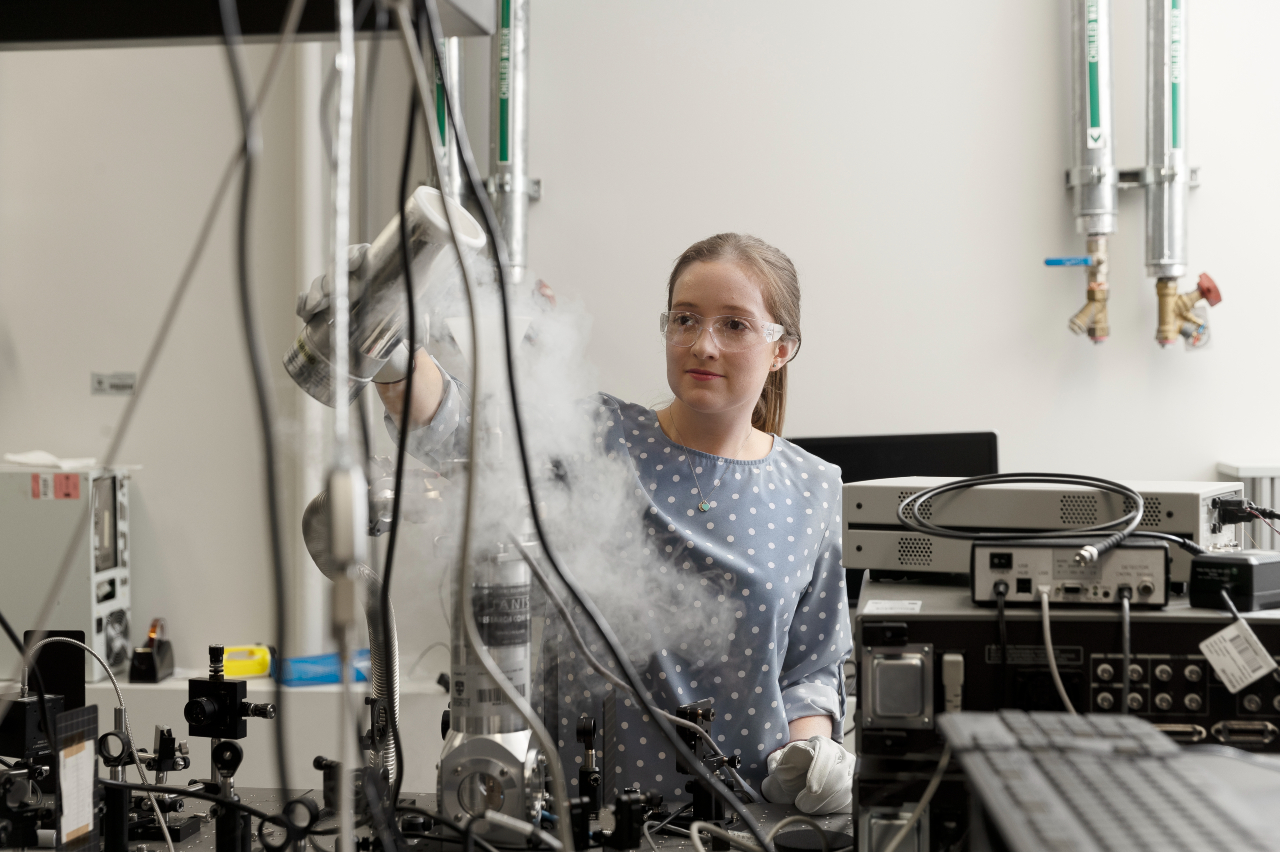
You watch Alison’s video entry below:
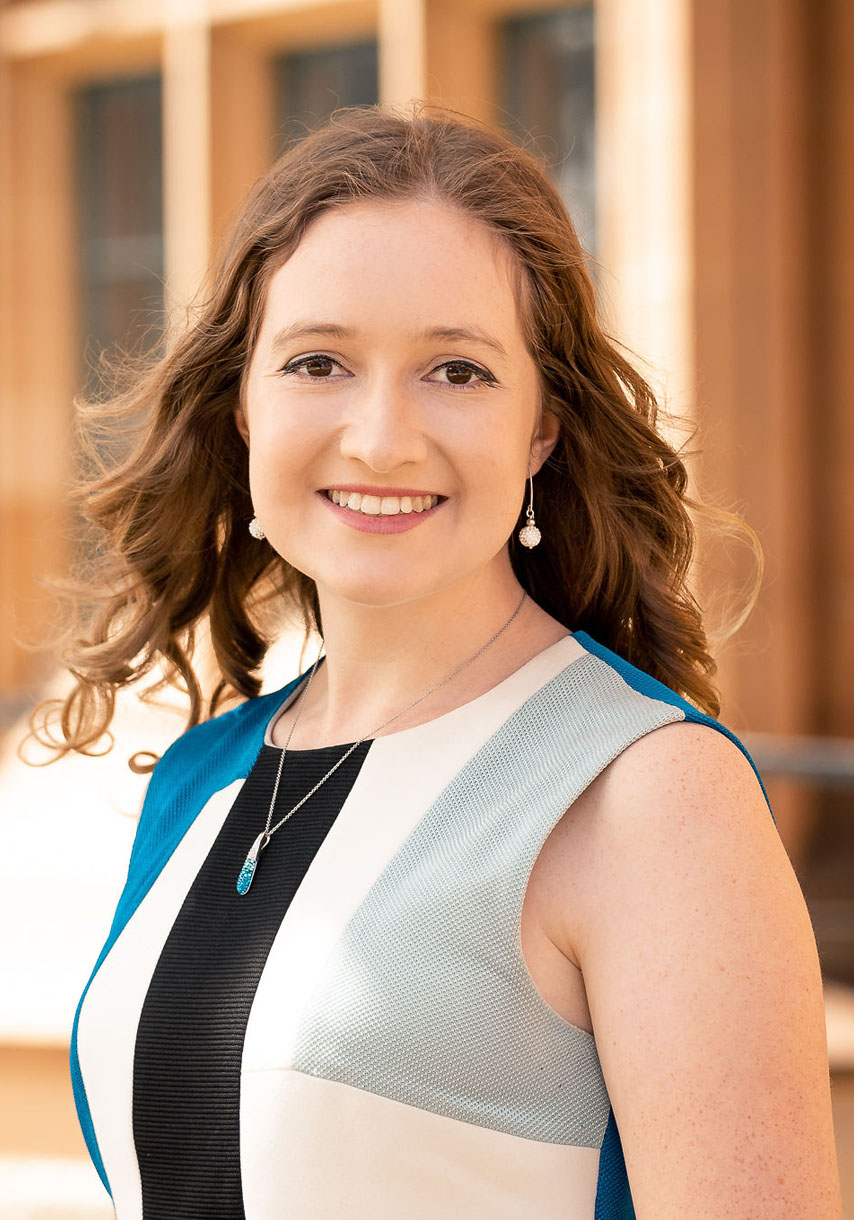
Alison Campbell
PhD student, University of Sydney
For more information about Australia’s FameLab competition in 2021.
Read more...Anita Ho-Baillie: Among Clarivate’s Highly Cited and The Australian’s leading Sustainable Energy researcher
In November 2021, Exciton Science Associate Investigator Anita Ho-Ballie was named on the annual Highly Cited Researchers™ list from Clarivate for the third year in succession.
In the same month, she was also named Australia’s leading researcher in the field of Sustainable Energy by The Australian newspaper.
Anita is the John Hooke Chair of Nanoscience at the University of Sydney. Her research interests include engineering of solar materials and devices at the nanoscale and integrating them onto all kinds of surfaces to generate clean energy for different applications. Anita’s achievements include setting solar cell energy efficiency world records in various categories and reporting of highly durable perovskite solar cells.
The Clarivate annual list identifies researchers who demonstrated significant influence in their chosen field or fields through the publication of multiple highly cited papers during the last decade. Their names are drawn from the publications that rank in the top 1% by citations for field and publication year in the Web of Science™ citation index.
The methodology that determines the “who’s who” of influential researchers draws on the data and analysis performed by bibliometric experts and data scientists at the Institute for Scientific Information™ at Clarivate. It also uses the tallies to identify the countries and research institutions where these citation elite are based.
Australia was fourth on the list for 2021, with 332 researchers, behind the United States, China and the UK. The full 2021 Highly Cited Researchers list and executive summary can be found online here.
Anita was also featured in The Australian newspaper’s annual Research magazine, as part of The List – a roll call of what the authors believe to be the best researchers and the best research institutions in Australia in 250 individual fields of research.
She was singled out for acclaim as the top researcher in the field of Sustainable Energy, alongside other leading figures within the broader category of Engineering and Computer Science.
The top ranking was based on the number of citations for papers published in the top 20 journals of her field over the past five years.
I am honored to be named as the top researcher in Australia in the field of Sustainable Energy under the Engineering and Computer Science category by The Australian.”
Anita Ho-Baillie
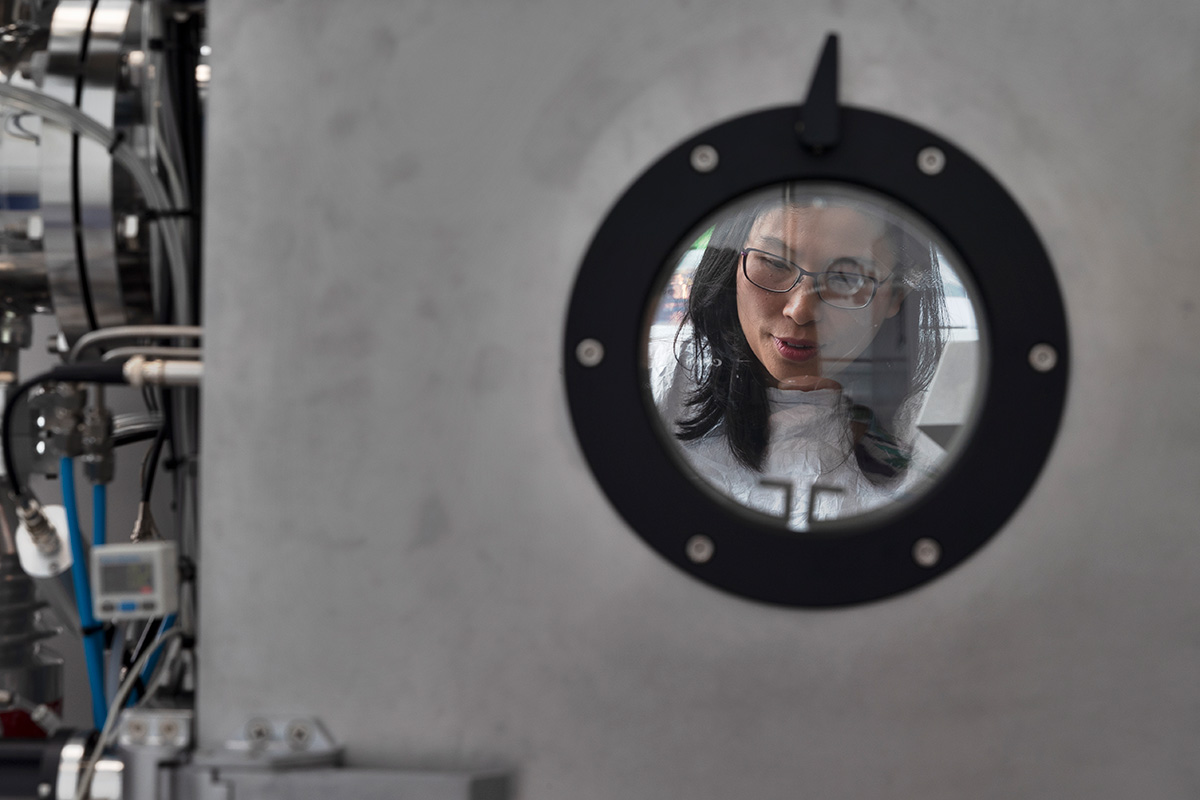
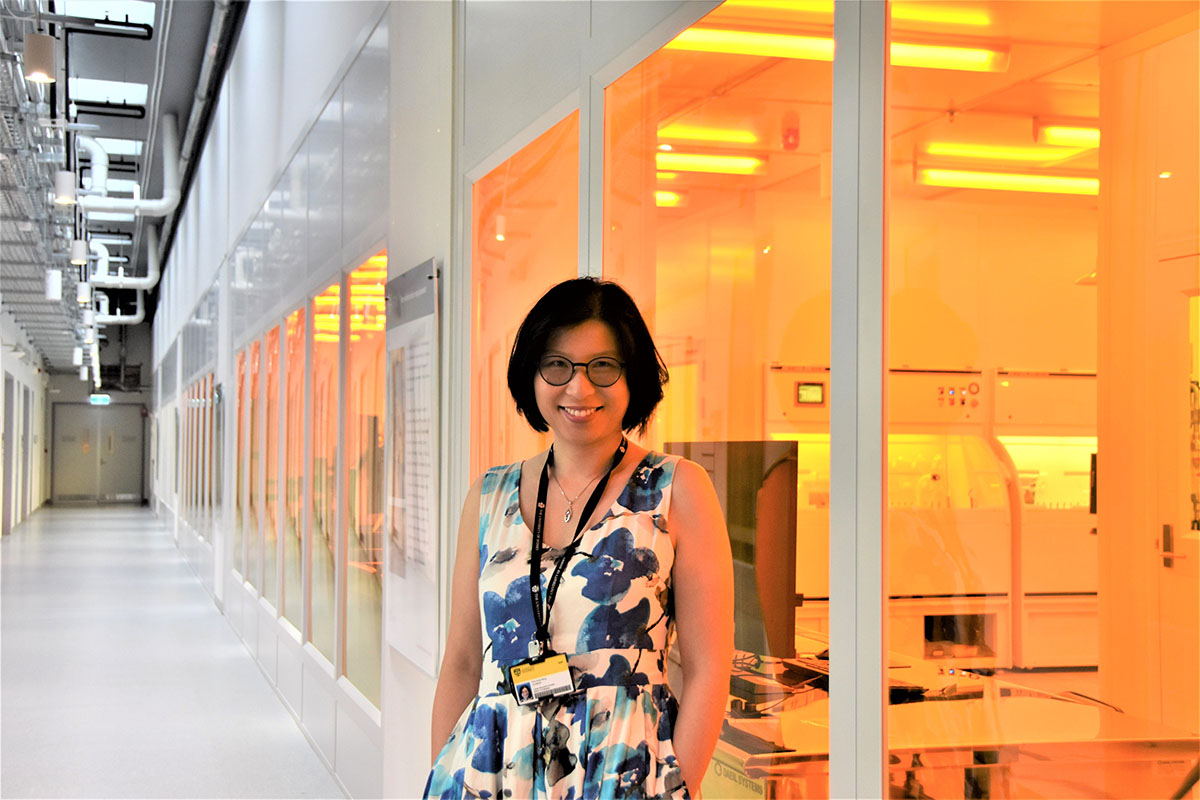

Prof. Anita Ho-Baillie
Associate Investigator, Exciton Science
Ivan Kassal awarded RACI Physical Chemistry Lectureship
Exciton Science Associate Investigator Ivan Kassal was jointly awarded the 2021 RACI Physical Chemistry Lectureship.
Ivan, an Associate Professor of Chemistry at the University of Sydney, received the award alongside Debbie Silvester-Dean of Curtin University.
The award provides funding for outstanding physical chemists to promote their research, and research in physical chemistry in general.
Ivan’s lectures will describe his work on using quantum computers for simulating chemical reactions, as well as his studies of fundamental charge and exciton processes that he has pursued as an Associate Investigator with Exciton Science.
I feel tremendously honoured to have been selected for the PhysChem Lectureship, which puts me in the company of some great chemists, including Exciton Science’s Prof. Timothy Schmidt, who received the inaugural lectureship in 2008.
The lectureship will allow me to visit universities all over Australia, including those in regional locations that I have never had the opportunity to speak at before. I look forward both to explaining my science to a broad audience, and to meeting new colleagues and future collaborators along the way.”
Ivan Kassal
As well as Timothy Schmidt, Ivan’s fellow Exciton Science Associate Investigator Lars Goerigk is another former recipient of the award, winning it in 2017.
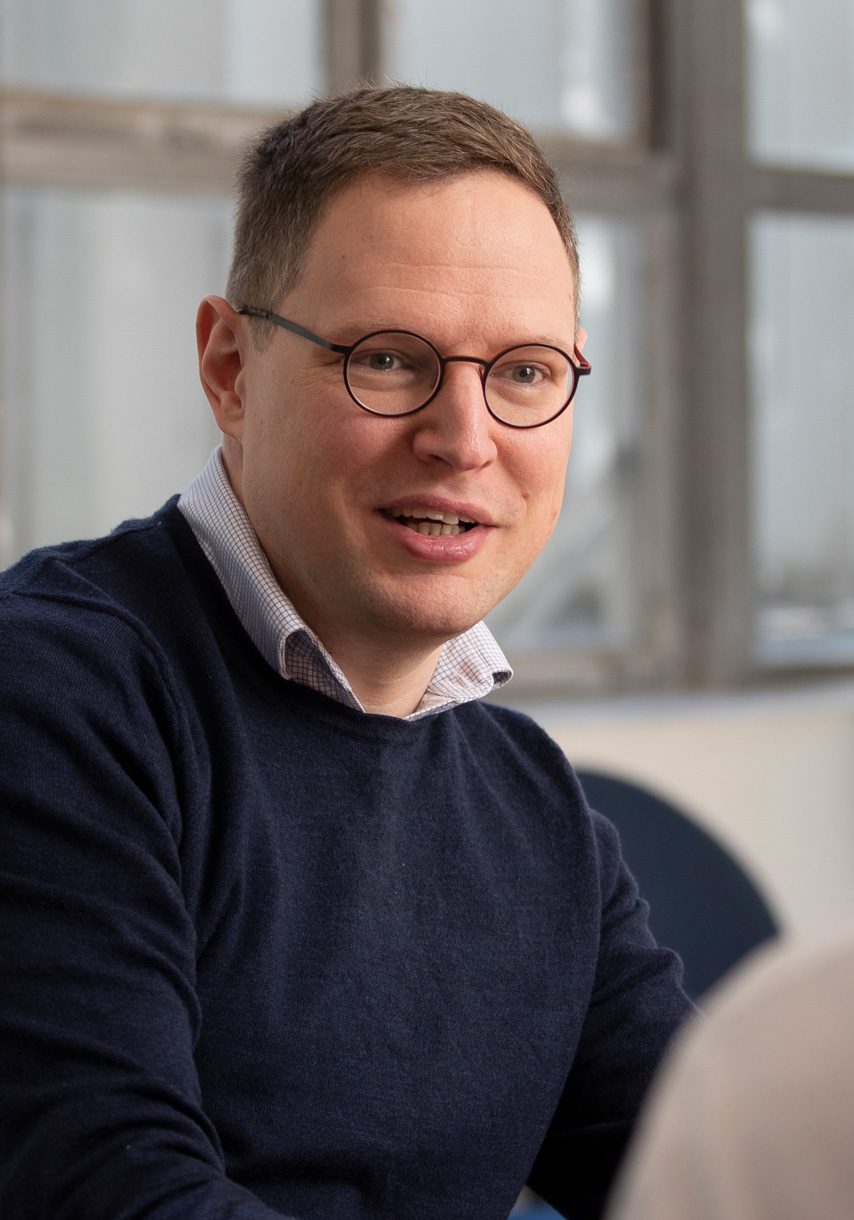
Assoc. Prof. Ivan Kassal
Associate Investigator, University of Sydney
Ann Roberts awarded Alan Walsh Medal
In July 2021, Exciton Science Associate Investigator Ann Roberts was awarded the Alan Walsh Medal for 2020 by the Australian Institute of Physics (AIP).
Ann, a member of the University of Melbourne’s School of Physics, received the award in recognition of her outstanding contribution to the fields of plasmonics, nanophotonics, and optics.
Her deep understanding of fundamental optics has enabled new advances in art conservation and attribution, particularly in collaboration with theGrimwade Centre for Cultural Materials Conservation, and to the development of new generation banknote security features in collaboration with the Reserve Bank of Australia and Exciton Science.
This award is really for all of the people who have contributed to collaborations in my group looking at fascinating problems that physics can help solve.
This includes some wonderful students, research fellows and academic and industry collaborators, and I’ve been really fortunate that my industry partners have been highly engaged in all aspects of the research.
Ann Roberts
Ann obtained BSc and PhD degrees in physics from the University of Sydney.
After a position as a postdoctoral associate in the School of Electrical Engineering at Cornell University, she took up an academic position in the School of Physics at the University of Melbourne.
Ann has diverse research interests in physical optics and photonics. She is a Fellow of the Australian Institute of Physics, the Optical Society (OSA), the International Society for Photonics and Optics (SPIE), and a former President of the Australian and New Zealand Optical Society.
Ann is also a Chief Investigator in the ARC Centre of Excellence for Transformative Meta-Optical Systems (TMOS).


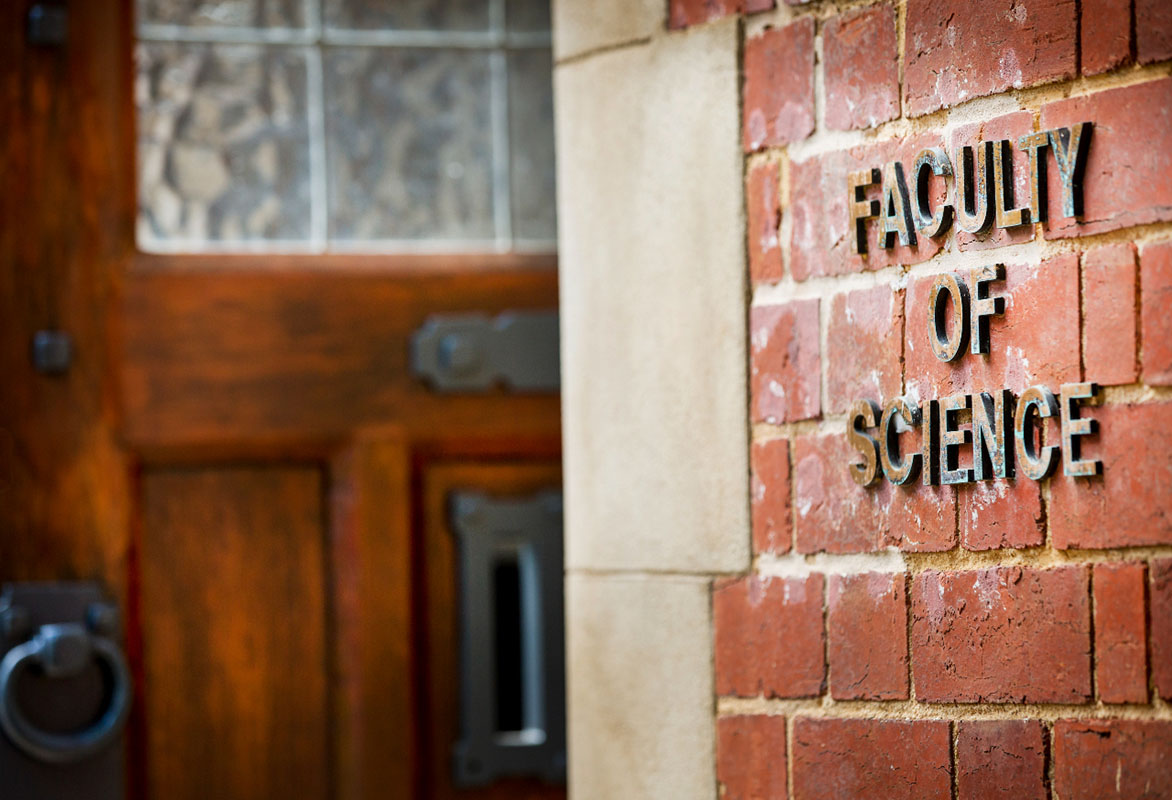
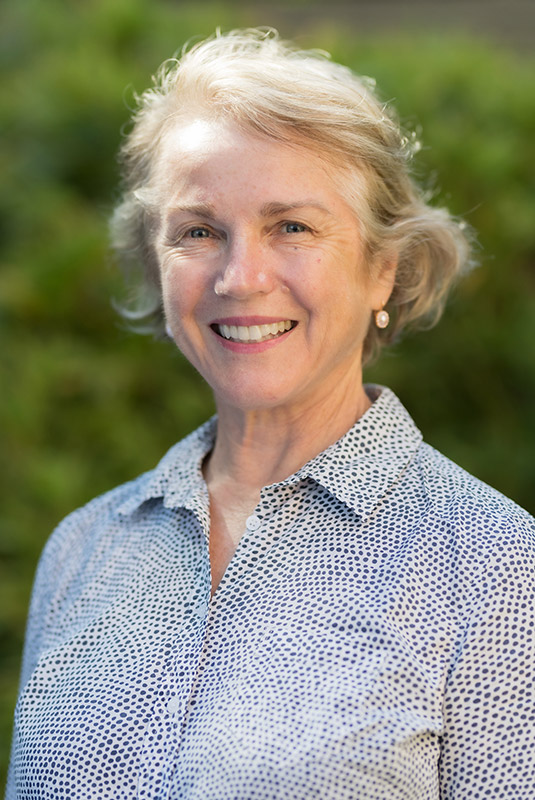
Prof. Ann Roberts
Associate Investigator, University of Melbourne
Read more about Ann’s research.
Read more...Jared Cole awarded Catalyst:Leaders Fellowship
Exciton Science Chief Investigator Jared Cole of RMIT University was awarded a Catalyst: Leaders Fellowship of the Royal Society of New Zealand.
The fellowship supports international researchers to catalyse science and innovation capability and capacity in New Zealand.
The project involves working with collaborators at Victoria University of Wellington and the MacDiarmid Institute over the next three years.
Jared and his collaborators will be developing device modelling and simulation tools which can be applied to exotic materials for spintronic and superconducting applications.
As well as exotic electronic materials, several researchers at VUW are leading experts in ultra-fast spectroscopy and photochemistry.
This fellowship will also provide me the chance to work with researchers at VUW over an extended period of time on potential joint projects with Exciton Science.”
Jarad Cole
Why do we need this research?
Electronics underpin the modern world, from the phones in our pockets to the supercomputers that model the weather. The heart of these devices are built using advanced fabrication techniques that have taken decades to perfect and optimise. Modern electronic devices are predominantly based on silicon chips, an approach which has been phenomenally successful.
However, we are reaching a critical juncture. The world-wide power consumption by computing is ever increasing. At the same time, we are reaching the limits of feature density, and switching speed. Our computer chips are literally limited by the fundamental laws of physics.
These limitations have prompted researchers to look at “beyond-CMOS” technologies. Using new materials and devices designs, we are looking for more energy efficient transistors, atomic scale computing methods and brand new computing paradigms such as quantum computing.
To implement these new designs requires rethinking decades of conventional electronics development, and to succeed we need novel device designs and exotic new materials.
This project will address beyond-CMOS technologies based on novel materials studied at Victoria University of Wellington. Using the latest mathematical and computational models, the researchers will design new devices which will underpin 21st century technology, both in New Zealand and worldwide.
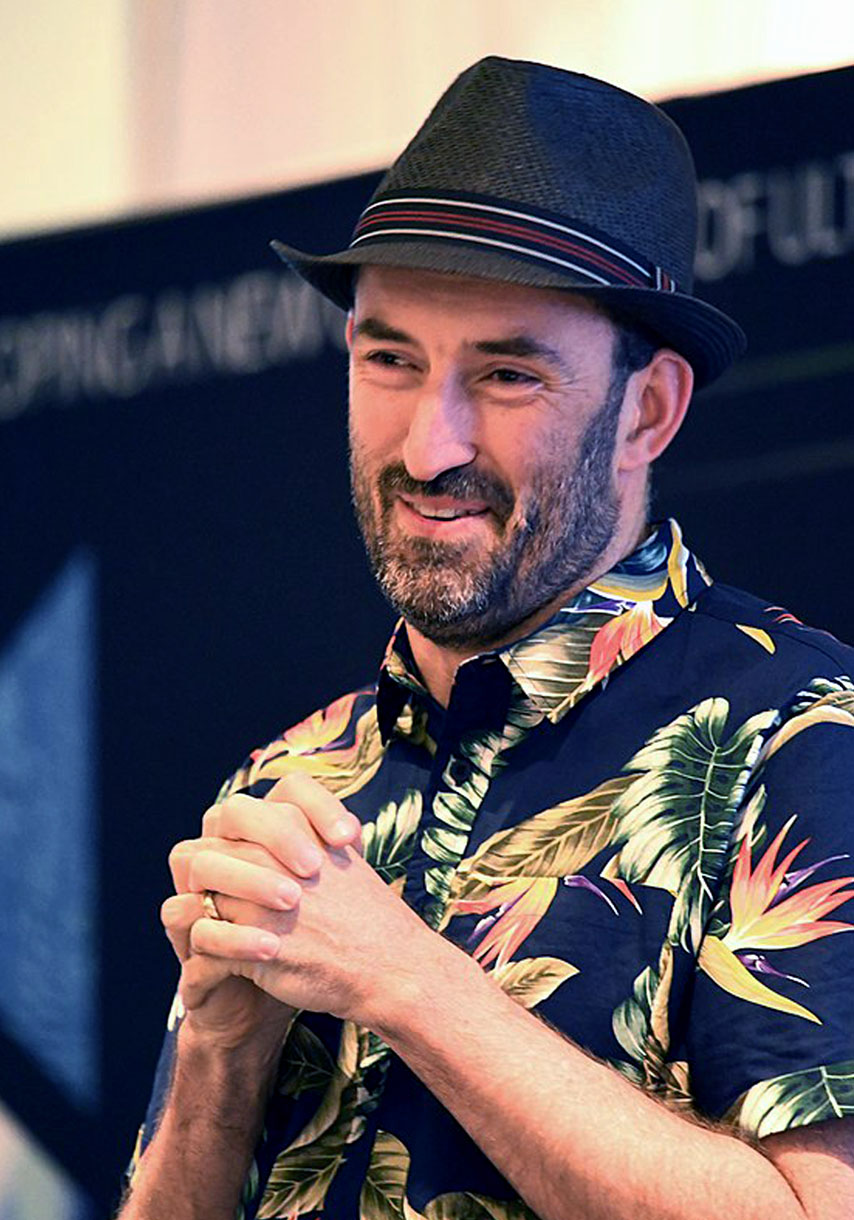
Professor Jared Cole
Deputy Director, RMIT University
Read about the other recent recipients of Royal Society Te Apārangi fellowships.
Read more...Fully charged: Prestigious grant awarded to investigate battery recycling
Dr Sherif A. Tawfik Abbas was awarded the prestigious Alfred Deakin Postdoctoral Research Fellowship (ADPRF).
ADPRFs are intended to build research and innovation capability and excellence and create impact in strategic priority research strengths at Deakin University.
The fellowships support and develop early career researchers, aiming to enhance Deakin’s capacity and capability in key research areas and build the next generation of high achieving and internationally competitive researchers.
A materials and data scientist with a PhD in physics, Sherif moved from RMIT University’s Theoretical Condensed Matter Physics Laboratory to Deakin University in June 2021, where he is now working with Professor Tiffany Walsh of the Institute for Frontier Materials (IFM).
“I’ll be using theoretical methods based on quantum mechanics and machine learning to guide battery recycling,” Sherif said.
You have a massive number of lithium batteries that are no longer functioning, and we want to find a way either to extract the lithium, cobalt or other precious materials, or to find a way to re-use them.
This sort of work needs two types of researcher, one in the lab to work out all the electrochemistry of battery recycling and material extraction, which is a very tough problem, and another to use quantum mechanics, simulations and machine learning to find ways to safely extract the elements by understanding the chemical environment inside the electrode. That’s what I’m proposing.”
Sherif A. Tawfik Abbas
For Sherif, being awarded the fellowship is an example of the invaluable importance of networking within academia.
“Tiffany has been enormously helpful in the whole process,” he said.
“I met her at a conference in 2019. I knew she was from Deakin and is doing really amazing molecular dynamics research. When I learned about the fellowship, I contacted her and told her I’d like to nominate her as my supervisor for the fellowship
“I always tell my students, ‘know people, meet people, let them remember your name, as much as you can.’ It’s not just sending your CVs to people. Knowing people face to face in conferences is really, really good for job hunting.”
While Sherif has now left RMIT, gaining the ADPRF did not mean the end of his relationship with Exciton Science.
Now an Associate Investigator, he is continuing to collaborate closely with the Centre’s Deputy Director Salvy Russo, as well as colleagues including Chief Investigator ;Jacek Jasieniak and research fellow Tharindu Warnakula, both at Monash University.
“It was really hard for me to tell Salvy, he’s amazing. A really great boss,” Sherif said.
“We have a lot of projects we are working on, including photoluminescent defects, photovoltaics materials and machine learning, and they’re all part of Exciton Science.”
Successful ADPRF applicants are provided with a grant to help initiate their research, although Sherif is fortunate to be able to store his most important item of equipment in a backpack.
“I’m a theoretician, so the lab is my laptop,” he said.
“I’ve also got computing time secured at the NCI (National Computational Infrastructure) and also in the United States at the Cori supercomputer, part of the NERSC (National Energy Research Scientific Computing Center) in Oregon.”
The members of Exciton Science congratulate Sherif on his successful application and look forward to collaborating with him further as he embarks on the next steps in his exciting career.

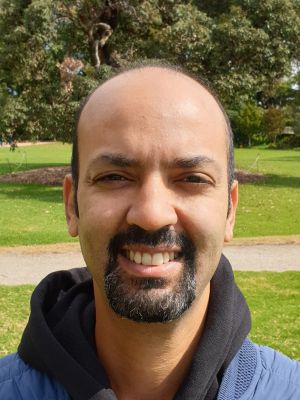
Dr Sherif A. Tawfik Abbas
Deakin University
Jacek Jasieniak appointed Pro Vice-Chancellor at Monash University
In 2021, Exciton Science Chief Investigator Jacek Jasieniak was appointed Pro Vice-Chancellor (Research Infrastructure) at Monash University.
As Pro Vice-Chancellor (Research Infrastructure), Jacek will continue to hold the position of Professor, Department of Materials Science and Engineering, Faculty of Engineering, as well as continuing in his role as a Chief Investigator of Exciton Science.
Jacek is an instrumental senior member of Exciton Science, driving the Centre’s world-class research output, guiding its strategic direction, leading by example in public outreach, and helping to establish a thriving culture of mutual respect and inclusion.
He joined Monash University in 2015 as Associate Professor of Materials Engineering and Director, Monash Energy Materials and Systems Institute. Under his leadership, the Institute was transformed through the development of innovative, large-scale research programs and was ultimately relaunched as the flagship Monash Energy Institute – now recognised as a thriving research ecosystem with a focus on accelerating a sustainable energy future.
Through his work with the Monash Energy Institute, Jacek played a key role in the development of strategic initiatives, such as the Monash Microgrid, which supported the University’s commitment to achieve Net Zero emissions by 2030; the Grid Innovation Hub and the Centre for New Energy Technologies, which focus on accelerating the Victorian energy transition; and the Woodside-Monash Energy Partnership, which drives next-generation leadership of sustainable energy technologies and carbon solutions.
In his role as Associate Dean (Research), Jacek has nurtured Monash Engineering’s $54 million research portfolio throughout the COVID-19 pandemic, while also launching a suite of academic engagement programs, fellowship, grant and infrastructure development schemes to support an interdisciplinary, excellence-focused research environment.
As a researcher, Jacek is focused on developing advanced materials for next-generation energy technologies and has extensively published in this area. This work has been supported through industry and granting bodies, and through significant funding for research infrastructure from the Australian Research Council and Australian Renewable Energy Agency.
His academic qualifications comprise a Bachelor of Science (Honours) from Flinders University and Doctor of Philosophy from the University of Melbourne, for which he was awarded the University Medal and Chancellor’s Award, respectively. He previously held ARC Postdoctoral Research, Australian Solar Institute and Fulbright fellowships, was the Group Leader of Agile Manufacturing at CSIRO, and is the former Chair of the Energy Research Institute Council for Australia.
Please join us in congratulating Jacek on his appointment, which commenced on 1 December 2021.
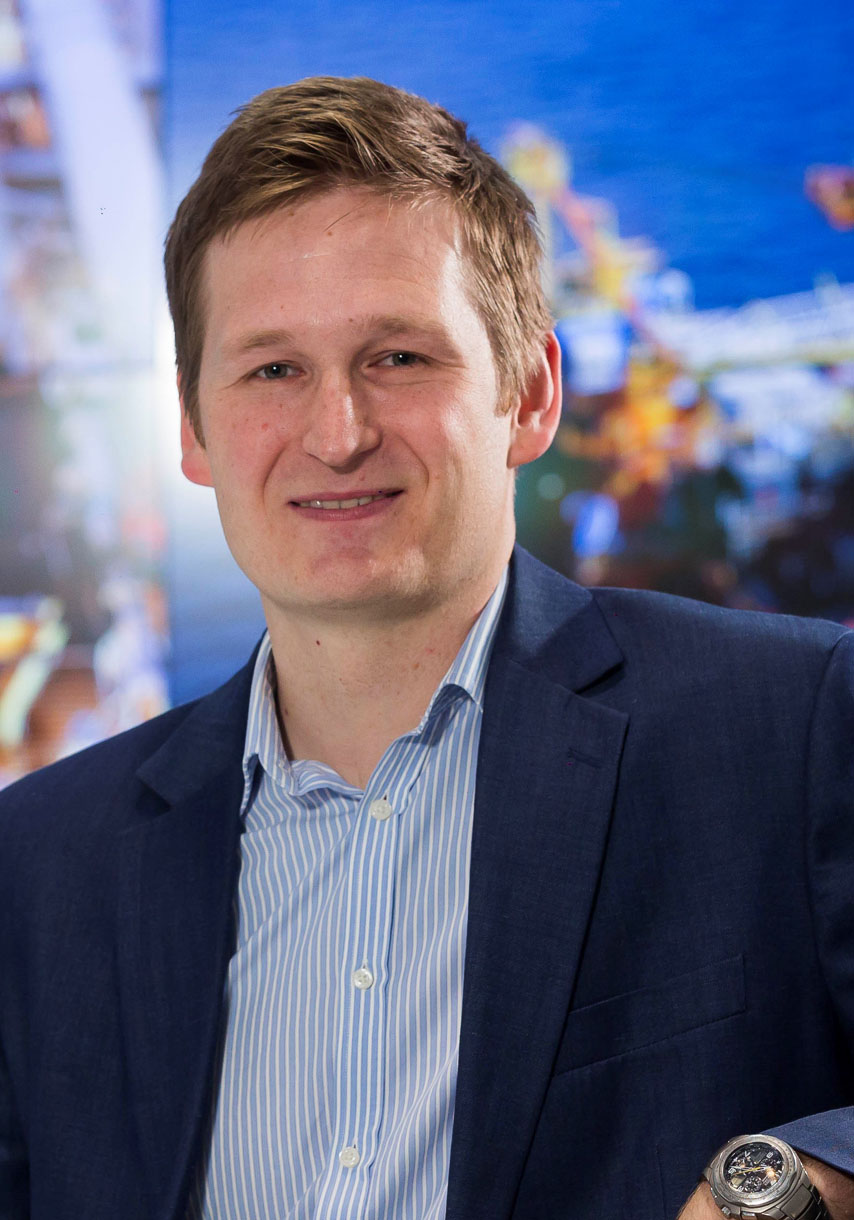
Prof. Jacek Jasieniak
Chief Investigator, Monash University
Best Publication Awards 2021
Best Cross-Node Publication
Detection of Halomethanes Using Cesium Lead Halide Perovskite Nanocrystals
Wenping Yin, Hanchen Li, Anthony S. R. Chesman, Ben Tadgell, Andrew D. Scully, Mingchao Wang, Wenchao Huang, Christopher R. McNeill, Wallace W. H. Wong, Nikhil V. Medhekar, Paul Mulvaney, and Jacek J. Jasieniak*
ACS Nano 2021, 15, 1, 1454–1464

Wenping Yin
Research Fellow
Monash University
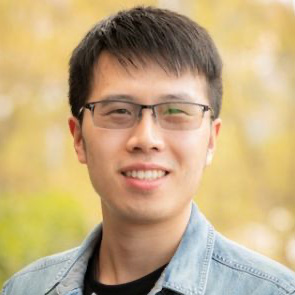
Hanchen Li
PHD Student
Monash University
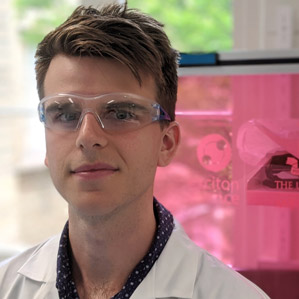
Ben Tadgell
PhD Student
University of Melbourne

Anthony Chesman
Principal Research Scientist
CSIRO
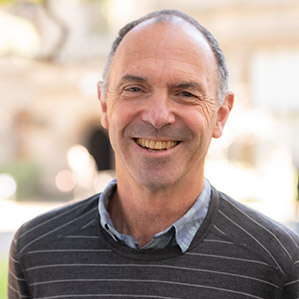
Paul Mulvaney
Centre Director
University of Melbourne

Jacek Jasieniak
Chief Investigator
Nanomaterials Laboratory for Next Generation Technologies

Wallace Wong
Chief Investigator
University of Melbourne
Best Student Publication
Delocalised kinetic Monte Carlo for simulating delocalisation-enhanced charge and exciton transport in disordered materials
Daniel Balzer, Thijs Smoulders, David Blyth, Samantha Hood, Ivan Kassal
Chem. Sci. ,2021,12, 2276-2285
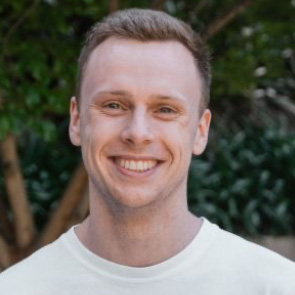
Daniel Balzer
PhD student
University of Sydney
Best ECR Publication
Soft X-ray Detectors Based on SnS Nanosheets for the Water Window Region
Babar Shabbir, et al, (incl. Sherif Abdulkader Tawfik, and Jacek J. Jasieniak)
Advanced Functional Materials 2021, 2105038

Babar Shabbir
Postdoctoral Research Fellow
Monash University